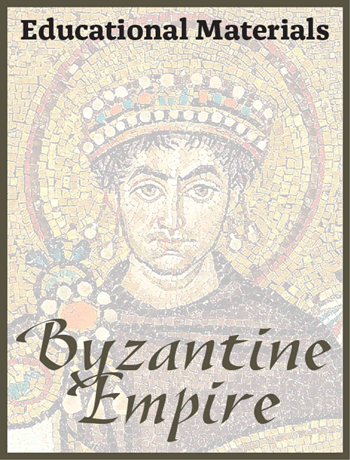The Byzantine Empire, also known as the Eastern Roman Empire, had a profound and lasting impact on the course of world history, culture, and civilization. It emerged as the continuation of the Eastern Roman Empire after the fall of the Western Roman Empire and lasted for nearly a thousand years, from the 4th century CE to the 15th century CE. The importance and impact of the Byzantine Empire can be understood through several key aspects.
 Preservation of Roman Legacy:
Preservation of Roman Legacy:
- The Byzantine Empire preserved many elements of Roman culture, governance, and law, serving as a bridge between the ancient world and the medieval period.
- Roman law, as codified in the Justinian Code, continued to influence legal systems throughout Europe and served as the basis for modern legal principles.
Christianity and Religious Influence:
- The Byzantine Empire played a central role in the development and spread of Christianity. Emperor Constantine the Great's conversion to Christianity in the 4th century CE marked a pivotal moment in Christian history.
- The First Council of Nicaea in 325 CE, convened by Constantine, laid the groundwork for early Christian theology and the Nicene Creed.
- The Byzantine Emperor Justinian I's efforts to codify Roman law and promote Orthodox Christianity shaped the religious and legal landscape of the empire and its successor states.
Art and Architecture:
- Byzantine art and architecture, characterized by intricate mosaics, religious iconography, and the use of domes, had a profound impact on the development of Eastern Orthodox Christian art and architecture.
- The Hagia Sophia in Constantinople (modern Istanbul) is an iconic example of Byzantine architecture and served as a model for later religious buildings.
Literature and Scholarship:
- Byzantine scholars preserved and transmitted classical Greek and Roman texts, contributing to the preservation of ancient knowledge during the early Middle Ages.
- The works of Byzantine historians, philosophers, and theologians, such as Procopius, John Chrysostom, and John of Damascus, had a lasting influence on later intellectual traditions.
Language and Education:
- The Byzantine Empire promoted Greek as its official language, which contributed to the spread and dominance of Greek culture and language in the Eastern Mediterranean.
- Byzantine education emphasized the study of classical literature, philosophy, and rhetoric, fostering intellectual development.
Trade and Economy:
- Constantinople's strategic location at the crossroads of Europe and Asia made it a major center of trade, facilitating the exchange of goods and ideas.
- The Byzantine Empire's economic stability and coinage system, including the gold solidus, were influential in Mediterranean trade.
Military and Defense:
- The Byzantine military, including the use of professional soldiers called the "Varangian Guard," defended the empire against numerous external threats, including Arab, Persian, and Slavic invasions.
- The Byzantine Empire played a key role in the defense of Europe against Islamic expansion during the early medieval period.
Legacy and Successor States:
- The fall of Constantinople to the Ottoman Turks in 1453 marked the end of the Byzantine Empire, but its legacy lived on in the Orthodox Christian world and influenced the development of modern Greece, Russia, and other Eastern European states.
- The Byzantine Empire's cultural, religious, and political heritage continues to shape the Eastern Orthodox Christian tradition and the historical memory of the region.
In summary, the Byzantine Empire was a significant and enduring civilization that made important contributions to religion, culture, law, and intellectual life. It played a central role in the transition from the ancient to the medieval world and left a lasting legacy that continues to influence Eastern Europe, the Eastern Orthodox Christian tradition, and the broader historical narrative of the region.
|

 Preservation of Roman Legacy:
Preservation of Roman Legacy:






